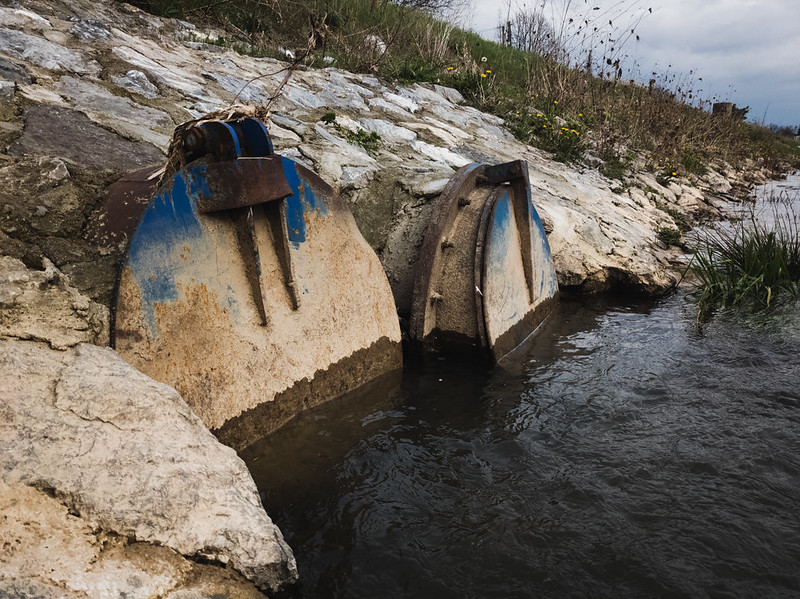Legally binding targets announced to cut sewage dumping in rivers
The government have announced new legislation on sewage discharges but nature experts have warned Tories may have washed their hands of the problem too easily.
Announced yesterday, Environment Secretary, Therese Coffey, said the government are set to introduce legislation to put plans to reduce storm overflows – relief valves that operate during heavy rainstorms to prevent sewage from overflowing into streets or homes – on a ‘new legal footing’.

‘I have been unequivocal on this issue. Water companies need to clean up their act – and they need to cover the costs’, Ms Coffey said. ‘But the hard truth is that however much we all want to see this fixed immediately, the scale and complexity means there is no way that we can stop pollution overnight. To suggest otherwise is dishonest.’
Ms Coffey added: ‘I am using the full force of my powers to make sure that we stop the damage caused by storm overflows as quickly as possible. That includes our plans today to put our costed and credible target on a new legal footing.’
Back in August 2022, the government published a Storm Overflows Discharge Reduction Plan which aims to eliminate sewage dumping by 2050 while cutting discharges close to high priority areas – including Sites of Special Scientific Interest and Special Areas of Conservation – by 75% by 2035 and 100% by 2045.
However, whilst welcoming the plans that were announced by the Environment Secretary, nature experts from Wildlife and Countryside Link, the largest environment and wildlife coalition in England, have warned that the target must be stronger than the ones set in the Storm Overflows Reduction Plan, which could allow sewage discharges to continue in high priority wildlife sites for over two decades.
‘Legally binding targets to cut sewage pollution are welcome, but matching the government’s Storm Overflows Plan would allow sewage to pour into sensitive wildlife sites for another twenty years or more,’ Richard Benwell, CEO of Wildlife and Countryside Link said. ‘That’s terrible for globally important habitats like England’s chalk streams, and for vulnerable wildlife. When they’re set in law, the targets must be much faster, in line with the commitment to halt the decline of nature by 2030.’
Richard added: ‘Of course, sewage pollution is just one cause of the dire state of our rivers. We need simultaneous action on agricultural reform, chemicals management, and sewage solutions, underpinned by a strong legal target to improve the overall health of our freshwaters. This is a key issue on voters’ minds and should be a major commitment from all parties.’
Following the announcement, Wildlife and Countryside have produced their own targets to help tackle the sewage pollution issue. These include:
- 100% of Storm Overflows in priority nature sites to cease discharging or causing ecological harm by 2030
- It should not be profitable for companies to pollute, to fail to meet environmental legislation, and for sewerage infrastructure to not be fit for purpose. The payment of dividends and bonuses should be limited for companies who consistently breach their environmental permits
- Real-time, transparent reporting should be delivered by all water companies for all storm overflows as soon as possible
- A fully-funded, robust and comprehensive enforcement and monitoring regime
- At least two inland bathing waters to be designated per water company per year
News of the government introducing new polices to axe the amount of sewage being disposed in rivers has come as the Department for Environment, Food & Rural Affairs have recently warned people of the worst coastlines for contaminants ahead of the summer months.
Image: Ben Wicks







 Network
Network